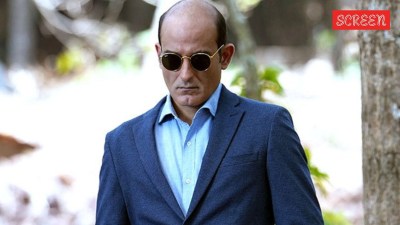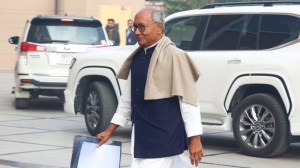Drop the surety clause
It was during a visit to Tihar Jail in 2000 that I came across one of the worst cases of human rights violations that I have ever encountered.

It was during a visit to Tihar Jail in 2000 that I came across one of the worst cases of human rights violations that I have ever encountered. For more than two months, a freelance journalist, a post-graduate, had been languishing in jail on the charge that he had entered the banquet hall of a five-star hotel without an invitation.
It reminded me of what US President Lyndon Johnson once said, to be quoted by Justice Krishna Iyer in the Moti Ram case while dealing with the issue of the release of undertrials languishing in different jails in the country: 8216;8216;He does not stay in jail because he is guilty. He does not stay in jail because any sentence has been passed. He does not stay in jail because he is any more likely to flee before trial.
8216;8216;He stays in jail for one reason only8212;because he is poor.8217;8217;
THE recent amendment to the Code of Criminal Procedure makes it mandatory for courts to release on a personal bond, with or without sureties, a person detained for up to one-half of the period of imprisonment specified under the law not being an offence for which the punishment of death has been specified as one of the punishments under that law.
It also provides for release of undertrials who are detained beyond the maximum period of imprisonment provided for the alleged offence.
This amendment is in consonance with the spirit of judgments delivered by the Supreme Court in Hussainaara Khatun and other cases, whereby the right to have speedy trial was included in Article 21 of the Constitution of India, which enshrines the Right To Life and Personal Liberty.
At present, the country8217;s jails house about 300,000 prisoners; more than 75 per cent of them are undertrials. I am sure most of them belong to the underprivileged classes. They must be made aware of the amendment. Thousands of prisoners throughout the country can be released provided the people involved in the administration of justice act sensitively and responsibly.
By the 8216;8216;people involved in the administration of justice8217;8217;, I mean lawyers including public prosecutors, jail administration and judicial officers. We all have to share the responsibility to make sure the amendment benefits a large number of prisoners languishing in different jails.
I STRONGLY feel there was no need to confer any discretion upon judicial officers in the matter of releasing an undertrial on a personal bond with or without sureties. This discretion is likely to result in miscarriage of justice and may even defeat the purpose of the amendment if the person ordered to be released is not able to arrange adequate sureties.
The unfortunate incident of the journalist, mentioned in the opening part of this article, is a living example of this discretion not being rightly exercised. The moment the case was brought to the notice of the High Court, Hon8217;ble Justice Dalveer Bhandari exercised his discretion in a supersensitive manner and ordered the immediate release of the journalist on a personal bond.
I am convinced that the difference in the level of sensitivities amongst judicial officers8212;as reflected in the case of the journalist8212;would result in injustice unless the law is amended to the effect that the person sought to be benefited shall be released on personal bonds without sureties.
The writer, a senior counsel and former secretary of the Supreme Court Bar Association, has worked extensively with undertrials.
- 01
- 02
- 03
- 04
- 05































